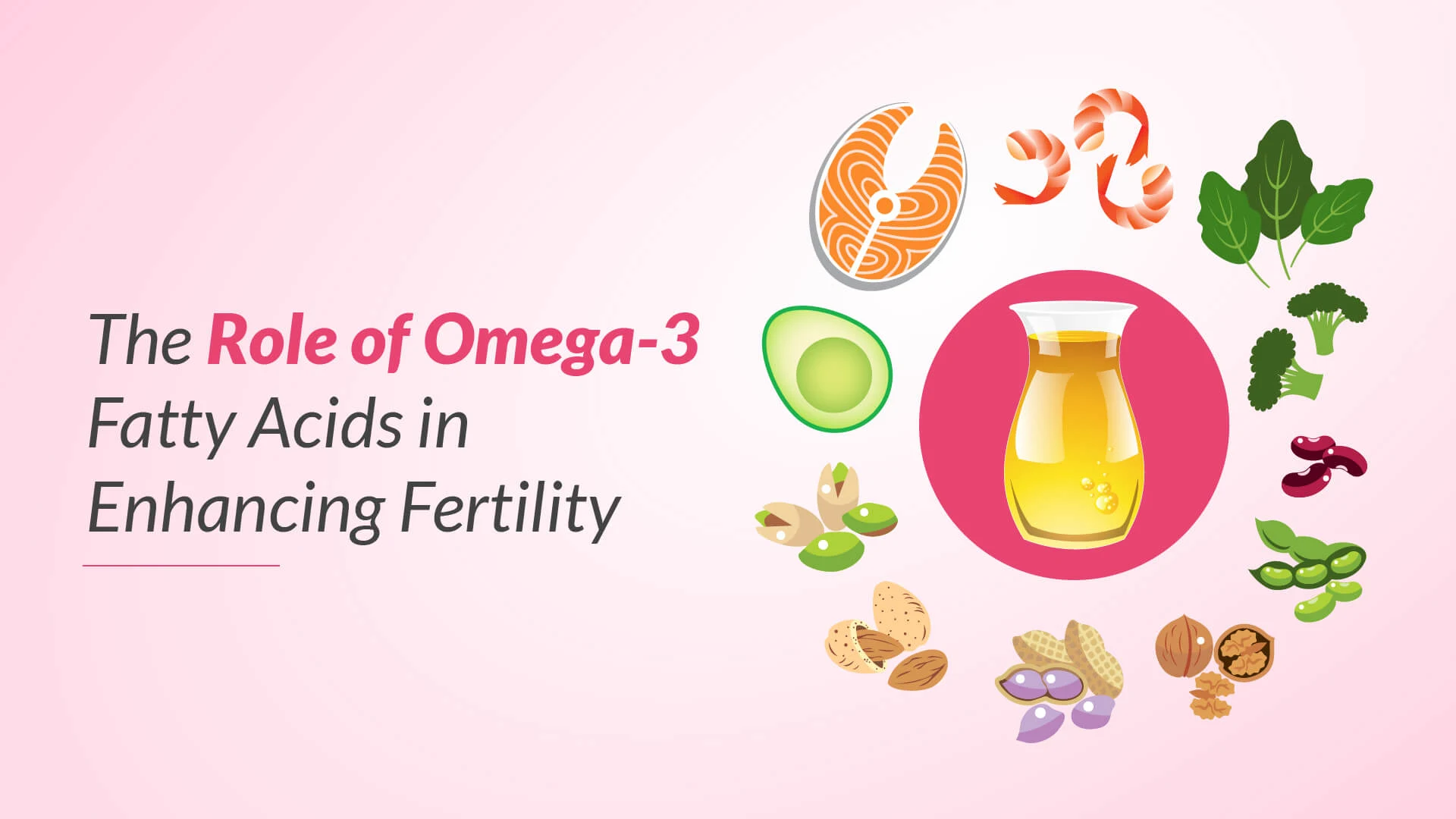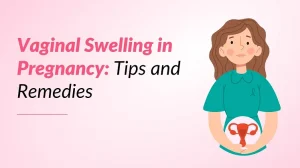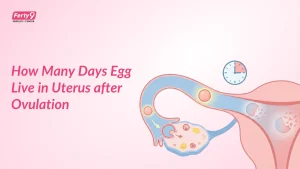According to the Centers for Disease Control and Prevention (CDC), few couples have trouble becoming pregnant; this problem may be more common in older women who are trying for their first pregnancy. It is essential to maximize natural fertility; unfortunately, only a few known modifiable factors increase the likelihood of conceiving naturally, and one such factor is omega-3 fatty acids.
Also read: How Iron Deficiency Impacts Fertility
What Are Omega-3 Fatty Acids, and Why Are They Important for Fertility?
The human body uses omega-3 fatty acids as a significant source of fat. They maintain the integrity of cell walls and provide us with energy. Omega-3 fatty acids must come from diet or supplements because our body is unable to make them on its own. Omega-3s come in several forms, one of which is DHA (docosahexaenoic acid), which is primarily present in some kinds of seafood. DHA is very significant for fertility health.
Although omega-3 fatty acids are excellent for your general health, there are vital roles of omega-3 fatty acids for fertility and reproductive systems, including:
- Lowering inflammation
- Controlling the hormonal balance
- Increasing the uterus’s blood flow
- Enhancing the embryo’s chance to implant into the uterus
Additionally, omega-3 fatty acids benefit men and are necessary for sperm function as they aid in the development of the acrosome, which is responsible for rupturing the egg cell’s outer membrane to facilitate fertilization.
Also Read: Trying To Conceive Tips from Experts
How Omega-3s Work in the Body?
Alpha-linolenic acid (ALA), eicosapentaenoic acid (EPA), and docosahexaenoic acid (DHA) are the three primary omega-3 fatty acids. Because ALA is an essential fatty acid that your body cannot produce on its own, you must obtain it from the foods and liquids you eat and drink or through supplements like fish oil for pregnancy. Only small quantities of ALA can be converted by your body from EPA to DHA. Thus, the only realistic approach to raising your body’s levels of these omega-3 fatty acids is to acquire your EPA and DHA from food and dietary supplements.
Important constituents of the membranes enveloping every cell in your body are omega-3 fatty acids. The brain, sperm cells, and retina (eye) have very high DHA levels. In addition to having several benefits for your heart, blood vessels, lungs, immunological system, and endocrine system, omega-3s also supply your body with calories.
Related read: The Role Of Fertility Centers In Modern Reproductive Medicine
How Omega-3 Fatty Acids Can Benefit Female Fertility?
For women who are pregnant or attempting to get pregnant, taking fish oil supplements offers several advantages. For women, omega-3 for fertility supports hormone regulation, egg quality, and menstrual cycle regularity. In actuality, prenatal nutrition, particularly that rich in folic acid, vitamin B12, and omega-3 fatty acids, has been associated with increased conception rates.
Regulation of Menstrual Cycles
Supplementing with omega-3 fatty acids is beneficial for enhancing menstrual cyclicity and uterine artery blood flow in PCOS patients. It may also be a beneficial option for some PCOS patients, particularly those who have impaired endometrial receptivity and subsequently experience infertility or recurrent miscarriages due to elevated uterine artery resistance. It also helps reduce menstrual pain.
Also read: Why Women with PCOS Are at Higher Risk of Endometrial Cancer?
Improvement of Egg Quality
Omega-3 fatty acids enhance egg quality and fertility in several ways by boosting the synthesis of FSH, which is necessary for egg development and maturation. They may also help prevent ovarian aging and enhance oocyte quality, especially in older women.
Reduction of Inflammation
Omega-3s may reduce inflammation by reducing the synthesis of prostaglandins and inflammatory cytokines. They can also help lessen inflammation in the uterus, ovaries, and other reproductive organs.
Support for Healthy Hormone Production
Hormone regulation is crucial for menstrual periods and ovulation, and omega-3s are helpful in achieving it. In women with PCOS, omega-3 fatty acids can help balance sex hormones, lower testosterone, and maintain appropriate serotonin levels. DHA is a type of omega-3 fatty acid that is essential for maintaining hormone balance during pregnancy.
Enhanced Uterine Lining Health
Omega-3 fatty acids can contribute to the health of the uterine lining through increased blood flow—a critical factor in the thickness of the endometrium. They help lower inflammation and maintain a healthy uterine lining.
What are the Impacts of Omega-3 Fatty Acids on Male Fertility?
The quality and fecundity of human semen have decreased over the past several decades, and this might lead to an increase in the need for fertility treatments in the future.
Improvement in Sperm Quality
Omega-3 fatty acids support healthy sperm motility, proper sperm cell growth, and, on average, bigger testicles and more semen with elevated free testosterone levels. Including Omega-3 fish oil in your healthy routines can also lower your chance of developing erectile dysfunction.
Enhanced Hormonal Balance
A further benefit of omega-3 fatty acids was the reduction in luteinizing and follicle-stimulating hormone levels, which suggested improved testicular function. By bettering testicular health, omega-3 fatty acids may contribute to increased testosterone synthesis and control. A vital hormone for male health, testosterone supports muscular mass.
Reduction in Oxidative Stress
Omega-3 fatty acids have the ability to lessen oxidative stress and its consequences on the plasticity and function of neurons. In vascular endothelial cells, oxidative stress-induced DNA damage can be controlled by omega-3 fatty acids.
Support for Cardiovascular Health
The cardiovascular system benefits greatly from omega-3 fatty acids because they lower blood pressure, reduce inflammation, cut triglycerides, prevent blood clots, minimize arrhythmia risk, and increase HDL cholesterol.
Potential Benefits in Infertility Treatment
Due to their ability to increase sperm count, quality, motility, and morphology, omega-3 fatty acids may aid in male fertility. Additionally, it raises the likelihood of pregnancy and the success rate of fertility treatments.
How to Incorporate Omega-3s into Your Diet?
There has yet to be a precise suggested daily intake of omega-3 fatty acids. A lot of specialists advise consuming 650 mg or more of these important omega-3 fats every day. It may be worth considering for you and your spouse to take 1,000 mg of omega-3 fatty acids daily in order to enhance your overall health and raise your possibility of attempting to get pregnant. The most significant source of DHA is pure fish oil. Having fish, nuts, seeds, plant oils, and fortified foods can improve your overall health.
Risks Associated with Taking Too Much Omega-3
A few of the known risks associated with taking too much Omega-3 are
- High blood sugar
- Bleeding (guma and nose)
- Diarrhea
- Low blood pressure
- Insomnia
- Vitamin A toxicity
- Stroke
- Acid reflux
Find Hope and Solutions for Female Infertility and Male Infertility — Explore Our Comprehensive Services
IVF Treatment
IUI Treatment
ICSI Treatment
PICSI Treatment
Fertility Preservation Service
Blastocyst Culture & Transfer Treatment
Genetic Screening & Testing
Conclusion
An essential source of fat for our bodies is omega-3 fatty acids. They provide us energy and maintain the integrity of our cell walls. It has been shown to increase the success rate of pregnancy and plays a crucial part in improving fertility problems for both men and women. Thus, it is imperative that we include omega-3 fatty acids in our daily diet.





























